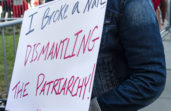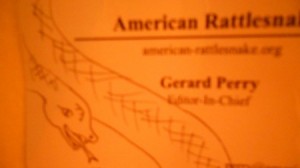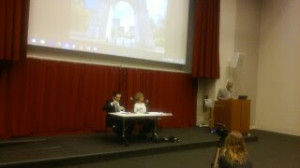Update: Here’s a link to a somewhat more concise review I did for Goodreads.
One of the most common critiques of contemporary American society, and Western culture more broadly, is its purported enthrallment to the opiate of celebrity. The notion that ordinary Americans are so dumbfounded by popular entertainment that they can’t understand linear, logical thought, let alone come up with workable solutions to complex problems which require such understanding, is not new. The late Neil Postman wrote an entire book exploring the damage wrought by modern communication techniques-namely, television and advertising-to the process of information-gathering, and by extension, rational argument and inquiry. However, even Henry David Thoreau-who lived before radio had attenuated the attention spans of humans weaned on the printed word-lamented the prospect of instantaneous communication.
Even so, you can’t properly understand the term celebrity until you’ve looked at a totalitarian state which is dominated not so much by an ideological impulse or dogma as by a cult of personality. That’s why the book written by celebrity ghostwriter Michael Malice-seen above in his dashing North Korean suit-about the late despot Kim Jong-il serves as an invaluable resource. Dear Reader: The Unauthorized Autobiography of Kim Jong Il-gives a western audience the rare opportunity to peer into the mind of someone who stood at the apex of a regime in which there was only one family and one person who was to be celebrated-upon pain of imprisonment, torture, and death.
The unique nature of the North Korean state lies not so much in its depraved sadism-although it’s difficult to argue that it doesn’t equal or exceed even the most barbarous governments on the planet in this regard-but in the fact that it has managed to extirpate any public expression of individuality. Not only has the Kim dynasty suppressed any and all political dissent for the better part of seven decades, it has succeeded in effacing the personality of 24 million Koreans. In the tropical gulag that is Cuba you will find exuberantly defiant bloggers standing up to the Castro brothers tyranny. In the despotic theocracy that is the Islamic Republic of Iran, you will find courageous resistance to the Khomenist regime and first-hand accounts of what it’s like to be incarcerated in the notorious Evin Prison.
You won’t find internal dissidents in the DPRK, because to all intents and purposes, they do not exist. To dissent is to sign your own death warrant-not only for yourself, but for three generations of your family. You won’t hear the conditions inside of kwan-li-so described, because-with a few exceptions-no one leaves these concentration camps alive, and the only way outsiders are able to view them is through satellite photographs.
The brilliance of Dear Reader is its ability to convey these horrific truths in a way which compels the reader to look at North Korea in all its unvarnished brutality. At first glance, the concept of writing a book about an ongoing holocaust which relies upon humor to any extent is controversial, if not revolting. One of the reasons that a film like Goodbye Lenin can be enjoyed by ordinary people is because they recognize that it satirizes ugly crimes perpetrated by a regime which is safely immured in the past, and which will in all likelihood never be resurrected. The atrocities being committed in the DPRK, on the other hand, show no sign of abating.
The truth is that this book is suffused with humor, but not the type of humor that most people associate with Kim Jong-il or Kim Jong-un. It’s not designed to focus on the trivial manifestations of their well-cultivated international image of eccentricity, e.g. the goodwill tour by washed-up NBA power forward/media spectacle Dennis Rodman. It’s used as a means of illustrating a lethally serious point. Namely, that this ruling clique has successfully employed an architecture of myth-based upon fear, ignorance, anger, and the desire for vengeance-in order to not only immiserate the Koreans under their rule materially, but to also impoverish their spirit and their souls.
One of the ways the author makes this viscerally disturbing narrative digestible is by contextualizing the Kim dynasty. People today can’t comprehend how a state created out of the spoils of World War II, a vestige of the Cold War conflict between the United States and USSR, became a singularly isolated and defiant national socialist, i.e. fascist, regime predicated upon the worship of a single individual and intense, multigenerational racialism.
He does this in a number of ways, most interestingly perhaps by humanizing his subject, i.e. one of the most loathsome dictators of the past half-century. As off-putting as this might seem to the uninitiated, it’s a surprisingly effective means of explaining how and why the North Korean state exists, in spite of an increasingly porous web of information control. Taking traditional biographical tropes about family life and adolescent angst and transposing them into a story about Southeast Asia’s most iconic despot is an unconventional technique, but ultimately a successful one. A particularly affecting anecdote involves a young Kim Jong-il guarding the study of his father, Kim il-Sung, as he sleeps. Oddly moving, it serves as a metaphor for his guardianship of his dad’s legacy, even at the cost of the enforced starvation of over a million of his countrymen.
This highlights another aspect of North Korea’s unique regime, which is later revealed explicitly by Kim himself, when he admits that his advisors are not chosen because of any technical competence or foresight they may display, but because of their intense loyalty to Kim il-Sung, i.e. Kim Jong-il, thought. The consequent economic, social, and environmental disasters that resulted from this leadership method are, naturally, a necessary evil for preserving the sanctity of the true Korean state in the eyes of the Dear Leader.
Malice makes the sclerotic nature of this system comprehensible, which might come as a surprise to many of us who have been repeatedly told that there is no rhyme or reason to the actions taken by the DPRK’s leadership. In fact, there was a brutal internal logic and rationality to the actions of Kim Jong il, from extolling a juche philosophy that seemingly prized autarky-even while living parasitically off the extorted handouts from hostile neighbors and the United States-to an incomplete series of garish monuments exalting the only family to have ruled North Korea since its creation.
Therefore, the Agreed Framework between the United States and the DPRK was not a shameful capitulation, but a necessary expedient to preserve the Juche ideal, while also debasing both a former and current President of the United States. True to the promise on Dear Reader’s book jacket, this part is 100 percent “true,” as a perusal of Bill Clinton’s letter to Kim Jong-il at the time demonstrates. The bellicose rhetoric emanating from North Korea is not the rantings of a paranoid lunatic, but Songun diplomacy, which, regardless of its dubious morality, was extraordinarily efficacious. Kim’s explanation of an humanitarian aid package accepted five years later illustrates why:
After much grandstanding and hyperbole, the American and Korean negotiators reached a compromise. The Americans claimed that they were neither rewarding me nor condoning my violent rhetoric. That is absolutely true. They didn’t “reward” me or “condone” my rhetoric. On the other hand, they did financially compensate me because of my aggression.
Accepting charity from the Yank devils was not a repudiation of the principles undergirding his very regime, but a brilliant strategic maneuver. And it wasn’t charity but reparations for the harm inflicted upon the DPRK for decades by the American imperialists.
This didn’t contradict the Juche principle of self-reliance one bit. I didn’t look at the package as aid so much as the repayment of a debt. The US imperialists had been threatening Korea for decades. It was entirely their fault that I’d had to expend such enormous sums on the military.
Even actions that seem completely inscrutable to outside observers, e.g. the North Korean government’s evident pride in being lavished with praise by equally dysfunctional nation-states like the West African, Marxist backwater Burkina Faso or the South Asian dumpster fire that is Pakistan, become explicable once you understand them from the perspective of the man pulling the strings. As absurd as having Mali as one of your strategic partners might seem to us, it serves the interests of the Kim regime. Just like its arsenal of ballistic missiles and nuclear weapons, the International Friendship Museum is intended for domestic consumption, not for our benefit.
If there’s one thing to take away from Dear Reader, it’s that there is a calculated reason for every decision made at the upper echelons of power within North Korea. As Kim Jong-il avers himself, he was “no buffoon,” and his actions-however clownish they may have seemed to foreigners-had deadly consequences which were methodically plotted out beforehand. This is a book worth reading, if only because it illuminates the dark corners of a society whose people have suffered for too long in the shadows of their loving parents.








Recent Comments